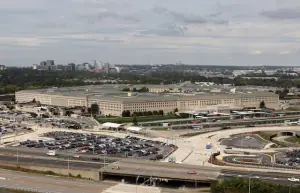Court win for Indian farmer raises hope for villages hit by coal mining
4 min readBy Anuradha Nagaraj
CHENNAI, India:Indian farmer Manbodh Biswal hopes his soil will become more fertile and he will get access to unpolluted water, after securing a rare legal win in which a court ordered two firms to pay damages for irresponsible mining in his home area.
This month, the National Green Tribunal told Hindalco Industries and Raipur Energen to deposit 100 million Indian rupees ($1.32 million) to clean up the "critically polluted" area around the Talabira-I coal block, which closed in 2018.
"We are surrounded by mines that have damaged all our land, air and water," petitioner Biswal, 65, told the Thomson Reuters Foundation by phone from eastern Odisha state.
"I have been fighting this for 10 years - and finally there is a ray of hope that we maybe able to save what little is left of our surroundings and go back to farming."
Legal representatives for both companies declined to comment, saying their clients were considering the possibility of an appeal in a higher court.
The firms argued during the case that they had complied with all norms.
India is the world's second-biggest coal producer, and intends to continue using the polluting fossil fuel to meet its rising energy demands, at least in the near term.
At November's Glasgow climate summit, Prime Minister Narendra Modi announced 2070 as India's target year to reach net-zero carbon emissions, while his officials managed to water down language on efforts to ditch coal power at the talks.
Despite 123 mine closures in India since 2008, there is very little evidence of environmental repair and land rehabilitation in affected areas, according to a recent study by the National Foundation for India (NFI), a charity promoting social justice.
Advocate Saurabh Sharma, who represented Biswal in court, hailed the ruling as the start of a potential new era for communities impacted by years of coal mining.
"It is quite rare for companies to be penalised and this judgment recognises issues that many communities living near mining hubs across the country face," Sharma said.
"We hope it will help Biswal and other villagers reclaim a part of what they have lost to the mining (industry) in terms of livelihood and clean surroundings," he added.
NO BENEFITS
Many of India's mineral-rich regions, like Biswal's home in Sambalpur district, have seen little social and economic development over the years, and are among the poorest and most heavily polluted regions in the country.
M. Bhagyalakshmi, founder of the Sakhi Trust charity that works with mining-affected communities, said rehabilitation efforts amounted to nothing more than "eye-wash".
"Communities remain vulnerable even after mines are closed with even basic needs like clean drinking water not being met," she said.
Special social justice funds set up to support poor communities have also been largely unspent or diverted, leaving coal regions under-developed.
Biswal said local people where he lives had not benefited from mining at all.
"We used to harvest two crops a year but now just manage to grow some vegetables," he said. "Our access to the farms has been restricted by hills of excavated earth from the mines. Irrigation water is polluted, coal dust is everywhere."
The tribunal asked the government to form an expert committee to work out compensation for past violations and the cost of reversing the environmental damage caused by mining in the Talabira-I coal block region since it was expanded in 2011.
The committee has also been tasked with drawing up a restoration plan for the region in three months. Affected villagers like Biswal can approach the committee to seek damages and support to restore their farmlands, Sharma said.
Mining companies are required by the Indian Bureau of Mines and the Coal Controller's Organization to file regular reports on the environmental impact of their activities.
A year before closing a mine, they must also submit a plan to restore the land through measures like planting trees and refilling mined land, before returning it to the state.
"Every time a coal mine shuts down, its workers and communities are the ones to be the most impacted," said Kavya Singhal, co-author of the NFI report.
"The first step after a mine closure should be to de-risk that area, since over the years these regions have been destroyed in terms of land, air and water," she added.
Former mining land can be redeveloped as forest, solar power plants or sites for other green industries, she said, adding companies had not made progress towards this on the ground.
The Coal Controller's Organization, which oversees the closure of mines, did not respond to questions on the accountability of mining firms.
For the latest news, follow us on Twitter @Aaj_Urdu. We are also on Facebook, Instagram and YouTube.
























Comments are closed on this story.